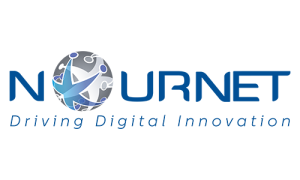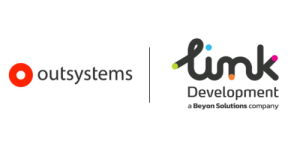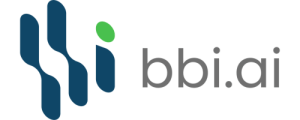Partners
Our CSO sponsoring partners represent some of the tech industry’s most innovative and leading companies.
Meet our partners
They will be at the event to answer your questions, share valuable information and provide solutions to your most pressing challenges.
Host Partner

e& enterprise
At e& enterprise, we specialise in supporting governments and large-scale organisations undergo successful digital transformations.
Through optimising operational efficiencies, enhancing customer engagement, and empowering data-driven decision-making, we enable seamless, sustainable, and secure transitions into the ever-evolving digital era.
Currently operating in the UAE, KSA, Egypt, and Oman; our cutting-edge digital solutions are specifically designed to deliver tangible business value and address the unique challenges faced by organisations and executives across various industries.
With a proven track record, extensive consulting expertise unrivalled technical experts and the ability to deploy and manage complex solutions, we collaborate closely with our customers, providing tailored solutions that empower them to navigate their end-to-end digital transformation journey and turn their vision into reality.
Ai Agent Partner

UnifyApps
UnifyApps is the Enterprise Operating System for AI that empowers organizations to transform into AI-native enterprises. Its horizontal platform connects systems of record, knowledge, and activity, enabling enterprises to find data, think with AI models, and act within business workflows—turning stalled GenAI pilots into scalable, production-grade solutions.
With thousands of pre-built integrations and an LLM-agnostic design, UnifyApps helps enterprises operationalize AI securely and confidently. Founded in 2023 and backed by WestBridge Capital, ICONIQ, and Elevation Capital, UnifyApps is headquartered in New York with a presence across the Americas, EMEA, and India.
Learn more at www.unifyapps.com or follow UnifyApps on LinkedIn.
Next-Gen Data Center Partner

Edarat Group
Trailblazer Partner

Google Cloud | CNTXT
Automation Partner

Nintex
Nintex is the global standard for process intelligence and automation. Today more than 8,000 public and private sector organizations across 90 countries turn to the Nintex Process Platform to accelerate progress on their digital transformation journeys by quickly and easily managing, automating and optimizing business processes.
For more information, please visit www.nintex.com and experience how Nintex and its global partner network are shaping the future of intelligent process automation.
To learn more about the new AI capabilities of the Nintex Process Platform, visit: https://www.nintex.com/process-intelligence/artificial-intelligence/
Strategic AI Partner

Lenovo
Lenovo is a US$69 billion revenue global technology powerhouse, ranked #248 in the Fortune Global 500, and serving millions of customers every day in 180 markets. Focused on a bold vision to deliver Smarter Technology for All, Lenovo has built on its success as the world’s largest PC company with a full-stack portfolio of AI-enabled, AI-ready, and AI-optimized devices (PCs, workstations, smartphones, tablets), infrastructure (server, storage, edge, high performance computing and software defined infrastructure), software, solutions, and services. Lenovo’s continued investment in world-changing innovation is building a more equitable, trustworthy, and smarter future for everyone, everywhere. Lenovo is listed on the Hong Kong stock exchange under Lenovo Group Limited (HKSE: 992) (ADR: LNVGY). To find out more visit https://www.lenovo.com, and read about the latest news via our StoryHub.
DX Partner

NourNet
Intelligent Data Partner

Qlik
Qlik transforms complex data landscapes into actionable insights, driving strategic business outcomes. Serving over 40,000 global customers, our portfolio leverages advanced, enterprise-grade AI/ML and pervasive data quality. We excel in data integration and governance, offering comprehensive solutions that work with diverse data sources. Intuitive and real-time analytics from Qlik uncover hidden patterns, empowering teams to address complex challenges and seize new opportunities. Our AI/ML tools, both practical and scalable, lead to better decisions, faster. As strategic partners, our platform-agnostic technology and expertise make our customers more competitive.
AI-Powered Platform Partner

OutSystems | Link Development
OutSystems is a global leader transforming how companies innovate through software, empowering IT leaders with a better way to build the software that matters most. The OutSystems platform helps companies develop, deploy, and maintain mission-critical applications by unifying and automating the entire software lifecycle.
Privacy Policy: https://www.outsystems.com/legal/terms-of-use/privacy-statement/
Link Development is a global technology solutions provider leading the digitalization of the private and public sectors. The company drives the business transformation of customers by delivering integrated, inventive, and digitally productive experiences that blend cloud, analytics, mobility, intelligent services, Internet of Things, and other technologies. Founded in 1996, Link Development operates in 24+ countries through eight offices in the UAE (HQ), Egypt, Saudi Arabia, Qatar, and USA.
Privacy Policy: https://linkdevelopment.com/privacy-policy/
SUMMIT PARTNERS

Zoho Corporation
For more than 25 years, Zoho has been committed to building software and technology that help businesses excel. From small companies to large organizations, more than 130 million users worldwide rely on Zoho to get work done. Zoho is privately held and profitable with more than 18,000 employees. Its privacy-first approach, long-term thinking, deep engineering focus, and customer-centric philosophy make it one of the world’s most prolific technology companies. Headquartered in Chennai, India, Zoho has additional offices in the United States, Japan, China, Canada, Singapore, Mexico, Australia, the Netherlands, Brazil, Saudi Arabia, Qatar, and the UAE. For more information, visit www.zoho.com

Cloudflare
Cloudflare, Inc. (NYSE: NET) is the leading connectivity cloud company. It empowers organizations to make their employees, applications, and networks faster and more secure everywhere, while reducing complexity and cost. Powered by one of the world’s largest and most interconnected networks, Cloudflare blocks billions of threats online for its customers every day.

Mozn
Mozn, a Saudi technology company, is dedicated to advancing digital innovation through the power of artificial intelligence.
OSOS, a pioneering Arabic GenAI platform that empowers enterprises with advanced natural language understanding and AI-driven capabilities.
Mozn Solutions, providing tailored AI solutions to address the unique needs of enterprises across diverse sectors, and FOCAL, a comprehensive risk and compliance platform.
Mozn maintains a significant presence, with offices in Saudi Arabia and the UAE with +300 dedicated professionals. Mozn is at the forefront of technological innovation, striving to redefine the limits of what is possible in the digital age.
TECHNOLOGY FOCUS GROUP PARTNERS

Veeam® Software
Veeam®, the #1 global market leader in data protection and ransomware recovery, is on a mission to empower every organization to not just bounce back from a data outage or loss but bounce forward.
With Veeam, organizations achieve radical resilience through data security, data recovery, and data freedom for their hybrid cloud.
The Veeam Data Platform delivers a single solution for cloud, virtual, physical, SaaS, and Kubernetes environments that gives IT and security leaders peace of mind that their apps and data are protected and always available.
The Veeam Data Platform delivers a single solution for cloud, virtual, physical, SaaS, and Kubernetes environments that gives IT and security leaders peace of mind that their apps and data are protected and always available. Headquartered in Columbus, Ohio, with offices in more than 30 countries, Veeam protects over 450,000 customers worldwide, including 73% of the Global 2000, who trust Veeam to keep their businesses running.

Iron Mountain
Iron Mountain, founded in 1951, is the global leader in storage and information management services. Trusted by more than 225,000 organizations around the world, and with a real estate network of more than 9.1 million square meters across more than 1,400 facilities in over 60 countries, Iron Mountain stores and protects billions of information assets, including critical business information, highly sensitive data, and cultural and historical artifacts.

Cloudera
Cloudera is the only true hybrid platform for data, analytics, and AI. With 100x more data under management than other cloud-only vendors, Cloudera empowers global enterprises to transform data of all types, on any public or private cloud, into valuable, trusted insights. Its open data lakehouse delivers scalable and secure data management with portable cloud-native analytics, enabling customers to bring GenAI models to their data while maintaining privacy and ensuring responsible, reliable AI deployments.

Crayon
Crayon empowers businesses to optimize, manage, and innovate their IT estates, enabling secure and cost-efficient digital transformation. With global expertise, Crayon drives data-driven decisions for a smarter digital future. Please visit Crayon | Home – Crayon

Mendix
Mendix, a Siemens business and the global leader in enterprise low-code, is reinventing how applications are built in the digital enterprise. With Mendix, enterprises can broaden development capability; make intelligent, proactive, and contextual apps; and modernize core systems, while maintaining security, quality, and governance. Globally, 5,000 companies use Mendix.

Perforce Delphix
Perforce Delphix is the industry leader in automated, compliant data delivery, enabling enterprises to drive DevOps agility, AI innovation, and cloud transformation. By removing traditional bottlenecks, our platform allows organizations to release applications 2x faster, secure sensitive data with 77% less exposure, and reduce infrastructure costs by 80%.
With advanced data virtualization, automated data masking, ephemeral cloud data environments, and integrations with DevOps and AI tools, Delphix ensures data is instantly accessible, secure, and compliant. Global leaders like Dell, BNP Paribas, Michelin, and Morgan Stanley rely on Delphix to fuel innovation, strengthen compliance, and optimize IT efficiency.

Rubrik
Rubrik’s mission is to secure the world’s data. Cybercriminals never sleep, and neither does Rubrik. By 2025, the cybercrime business will be worth $10 trillion, making it the third-largest economy in the world. To fight back, you need a way to secure your data, monitor for data risks, and quickly recover your data no matter where it lives. Rubrik helps you achieve business resilience against cyberattacks, malicious insiders, and operational disruptions. It secures your data wherever it lives — across enterprise, cloud, and SaaS — making your business unstoppable.

Vidscola
VIDSCOLA is the leading regional provider of end-to-end agile transformation services.
Established in 2011, VIDSCOLA is now the go-to organization for comprehensive agile transformation services. From discovery & assessment to transformation planning, to execution, VIDSCOLA consistently provides a fully-fledged set of agile and Atlassian tools services of the highest quality to its clients. With the main office in Dubai, UAE, and running operations in Egypt, Jordan, Saudi Arabia, Kuwait, and Oman, VIDSCOLA serves progressive and forward- thinking enterprises, in multiple industry verticals, across the Middle East and Africa region.
VIDSCOLA is the only accredited training provider in the Middle East and Africa that can deliver all ICAgile, Scrum Alliance, Kanban University, PMI, and Scaled Agile (SAFe) certified learning programs and accreditations. With +60 elite experts, +12 years of Regional Leadership in Agile Services, and +23 Technology Partners, VIDSCOLA helped +26,000 Learners to get certified
and apply their learning in their day to day jobs. VIDSCOLA is the only accredited ICAgile Transformation Partner in the region. Offering a comprehensive Agile Transformation Services including Agile Training, Agile Coaching, Atlassian Suite implementation and full fledged DevOps enablement.
VIDSCOLA is the only Atlassian Agile at Scale specialized partner from the Middle East region. As well, being an Atlassian Gold Solution Partner with a wealthy track record in lean processes design and re-engineering. Vidscola provides a world class DevSecOps services with successful track record to unlock new effectiveness level for our clients.

Incorta
Incorta is the most efficient data integration product that enables analytics on live, detailed data across all systems of record—without the need for complex ETL processes. By enabling direct access and analysis on raw, source-identical data through its proprietary Direct Data Mapping ® technology, Incorta provides faster, more accurate insights while removing barriers to exploration. With intuitive low-code/no-code tools, AI-powered copilot tools and querying through Nexus, and prebuilt business data applications, enterprise teams can quickly surface insights, break down technical roadblocks, and make smarter decisions without heavy engineering effort.

Checkmarx
Checkmarx is the leader in application security and ensures that enterprises worldwide can secure their application development from code to cloud. Our consolidated platform and services address the needs of enterprises by improving security and reducing TCO, while simultaneously building trust between AppSec, developers, and CISOs. At Checkmarx, we believe it’s not just about finding risk, but remediating it across the entire application footprint and software supply chain with one seamless process for all relevant stakeholders.
We are honored to serve more than 1,800 customers, which includes 40 percent of all Fortune 100 companies including Siemens, Airbus, SalesForce, Stellantis,
Adidas, Wal-Mart and Sanofi.

Security Matterz
Security Matterz is a premier cybersecurity company based in Riyadh, Saudi Arabia, dedicated to protecting your digital landscape with cutting-edge solutions.
With a legacy of safeguarding critical assets since 2007, we are known for our expertise, innovative approach, and unwavering commitment to cybersecurity excellence. We help businesses across the Middle East stay secure, resilient, and ahead of emerging threats.

Confluent
Confluent’s mission is to set ‘data in motion’ and empower organizations to innovate and win in a digital-first world. Confluent has pioneered a cloud-native, enterprise-ready data streaming platform that is designed to be the intelligent connective tissue of an organisation. With Confluent, customers can meet the new business imperative of delivering rich, digital customer experiences and real-time business operations.

OpenText
OpenText can help you tackle the most complex digital transformation programs with confidence. With the world’s most complete and integrated Information Management platform, we empower our customers to organize, integrate and protect data and content as it flows through business processes inside and outside their organization.
OpenText | Information Management Solutions
https://www.linkedin.com/company/opentext/posts/?feedView=all

Commvault
Commvault (NASDAQ: CVLT) is the gold standard in cyber resilience, helping more than 100,000 organizations keep data safe and businesses resilient and moving forward. Today, Commvault offers the only cyber resilience platform that combines the best data security and rapid recovery at enterprise scale across any workload, anywhere—at the lowest TCO.

Code 81
CODE81 is coding a better future by delivering best-in-class digital transformation solutions across data and AI, application development, and automation and integration. CODE81 is dedicated to enriching lives and helping businesses thrive through agile, intelligent, and scalable technology that drives innovation, efficiency, and lasting impact.

NetApp
NetApp is an American data infrastructure company that provides unified data storage with the only enterprise-grade storage service natively embedded in the world’s biggest clouds, integrated data services with built in data resilience and policy-based governance, and CloudOps solutions with AI-powered optimization of on-prem and cloud infrastructure.

F5
F5 empowers its customers to create, secure, and operate applications that deliver extraordinary digital experiences. Fueled by automation and AI-driven insights, these applications will naturally adapt based on their changing environment—so companies can focus on their core business, boost speed to market, improve operations, and build trust with their customers.
EXHIBIT PARTNERS

Kualitatem
Kualitatem is the UAE’s only TMMi Level 5 testing services company and has been ranked by one of the leading research firms twice. It has been working in the UAE for more than 15 years. Its team of elite software testers has got you covered whether you need functional/automation/performance testing, penetration testing, stress testing, or any other form of testing.

SUDO
SUDO Consultants, the leading AWS Premier Tier Services Partner in UAE and KSA, helps businesses digitally transform their operations with the power of the cloud. We help you leverage the full potential of the cloud to streamline and automate your business processes, reduce operational costs, and gain a competitive edge.
SUDO Consultants, headquartered in Dubai and operating a regional office in Riyadh, supports clients across the US, Asia Pacific, Europe, the Middle East, and Africa. As an AWS Premier Tier Partner, we help you build, migrate, and manage applications on AWS. We also enable data driven decision making by integrating advanced data platforms, analytics, and AI solutions on AWS.

Naseej
Naseej – Arabian Advanced Systems – is the Leading Knowledge Solutions Provider in the Arab World Serving Academic Institutes, Cultural Centers and Government Organizations Since 1989. Naseej Delivers World-Class Solutions and Services that Enable our Partners to Manage and Share Knowledge, and Leverage the Latest in Information Technology Solutions to Achieve their Business Objectives.

KoçSistem
KoçSistem, one of the leading players in information technology sector, summarizes its corporate mission by the motto “Your imagination is our strength”, and helps its customers to attain their goal of sustainable growth rate with its strategy “creating a difference” by providing them unique technology solutions and outsourcing services. KoçSistem has been one of the leading companies in the field of information technology solutions in Turkish Information Technologies Sector since 1945. In accordance with the approach “end to end services”, KoçSistem has adopted the principle of providing service beyond expectations of the customers with its customized special technological solutions.With its service centers throughout Turkey, KoçSistem provides unconditional customer satisfaction by managing information effectively and appropriately, taking position against global competition, targeting to turn its customer’s imaginations into reality, using its rapid and solution-based system and gaining confidence from its experience of 65 years. In order to perpetuate its unique position in Turkey, KoçSistem combines its corporate capabilities and creativity with the power of the world’s largest technology producers and providers by establishing strategic joint ventures. In the 2009 report of IDC, KoçSistem ranked 2nd in the Turkish Information Technologies Services Market. KoçSistem grew by 30% (on the basis of Turkish Lira) at the end of 2009 in comparison with the previous year.

Fileorbis
FileOrbis is an on-premise file management and sharing system that is equipped with unique usage and control features. It is a safe, fast and easy platform that can be integrated into file structures, security solutions, and you can start using it quickly by integrating it into existing user permissions and file environments. It collects all file environments that your users have access on a single screen. It provides easy and location-independent file access to users via mobile, web and Outlook Add-in. Your users can easily share their files within the establishment and exchange files with external users, without file size limit. While your users gain a comfortable and safe working environment, you can increase the manageability of your establishment’s files, control access permissions – report, prevent sensitive data leakage, or even economize the workload you spend on IT needs of your end users.

ManageEngine
ManageEngine is a division of Zoho Corporation and a leading provider of IT management solutions for organizations across the world. With a powerful, flexible, and AI-powered digital enterprise management platform, we help businesses get their work done from anywhere and everywhere—better, safer, and faster. To learn more, visit www.manageengine.com

BBI
Stay tuned for exciting news!
Saudi Arabia’s transformation is redefining possibilities—from visionary mega projects to cutting-edge AI innovations. More breakthroughs and bold moves are on the way.
Register Now